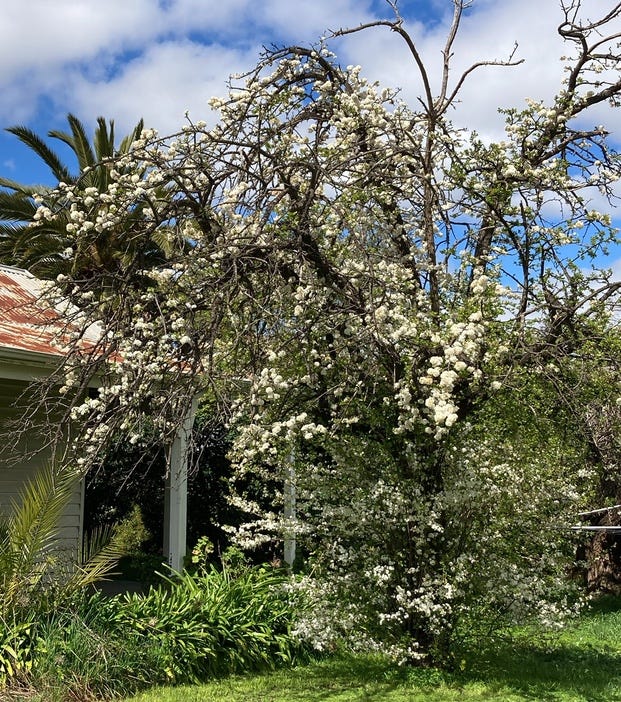Why small changes matter
In this episode, we explore why focussing on small changes may be more important than focussing only on the big ones
A few days ago, someone replied to my previous post ‘What’s the plan?’ with this single short sentence:
The plan is Agenda 2030.
Okay, I’ll admit I didn’t know what ‘Agenda 2030’ was, so I had to go look it up. Turns out that it’s some grand project from United Nations: ‘Transforming Our World: the 2030 Agenda for Sustainable Development’. When I explore it in a bit more detail, I find that my own nation’s government tells me that it’s linked to the somewhat-better-known Sustainable Development Goals - which, yes, I’d known about, but didn’t actually know. Not in any ‘it’s personal, this matters to me right now’ sense, anyway.
And that’s actually the problem. Yes, Agenda 2030 is all about big-change, and facing the big changes that are coming our way. And yes, it does seen to be sort-of heading in the right direction. (Well, sort-of, anyway. Probably. Maybe. Though there do seem to be some, uh, rather important gaps, as you’ll soon see when you compare it with what you’ve read here over the past couple of years…)
So yes, it’s a Big Important Plan. But again, that’s actually the problem. It’s a Big Important Plan that most people outside of government have never heard of. And even once we do find out about it, most of it is happening Somewhere Else, mostly focussed on Someone Else. For most of us, there’s almost nothing to connect it with our worlds, our experiences - other than as taxpayers, perhaps. And yes, the goals are all laudable indeed, from a classic ‘liberal’-type perspective. But not everyone holds that specific perspective. For example, try reading it all from a mainstream money-centric worldview, or from, say, a Trump MAGA perspective: maybe as much as half of these goals are things that they’re fiercely against. Unless we can find some way to bring those people along too, it just ain’t gonna work…
And that’s always the problem with Big Important Plans: they’re usually well-meant and all that, but they’re always top-down, and so often riddled with so many untested assumptions that it’s no wonder that they so often quietly fall apart, with so very little to show for all of that well-meant effort. I’ve seen it happen so many times now over the past half-century and more: ending “not with a bang but with a whimper” and all that. Oh well.
Which is why small-changes matter. Because small-changes accumulate into the big-changes that we need.
Look at how nature works in the real-world. It doesn’t have any grandiose Big Important Plans. Instead, it starts small, with the first blossoming:
And then it spreads and spreads, slowly at first, to fill the whole space:
Then, once the bees have been busy, it throws the whole lot away: all that beautiful blossom falls to the ground, and quietly disappears into nothingness. And then, the next stage happens:
And then the next stage, and the next, and the next, and the next.
Small changes. Always small changes.
So how does the same process work with people?
Well, yes, we do sort-of need that Big Important Plan, to hold the focus, to provide an overall vision, an anchor, that sort of thing. But a Big Important Plan that only applies at the government level is going to be going nowhere. Instead, it must connect down to the everyday, to the level of small changes. Successful change happens only when it starts small, and builds upward - bottom-up, not top-down. The small changes combine, and combine, and combine again, quietly accumulating and linking together to create that Big Important Change.
So for something like Agenda 2030 to work, it has to start at the small. It has to provide a reason for everyone - including the money-obsessed and the MAGA-folk - to ask themselves, in their own way, “for me to live a more sustainable life, what do I need to change to make that happen?”
We have to give people a reason to say, for example, “I value a more sustainable life. I am committed to learning how to do that, and to help others to do that when they’re ready”. For a lot of people, that will indeed be a big-change - but we need to be able to get them there, without force (which doesn’t work) or punishment (ditto) or denigration and shaming (ditto). And when trust in big-institutions is as low as it is right now, coming top-down isn’t going work. The only way that is going to work is with small-changes that yes, must connect with the big-picture, but that fit their world and worldview, not ours…
That’s why small changes matter: it’s the only way that works.
(True, there’s a lot more we need to explore around scaling - about how to scale up from small-changes to larger-scale change. But that’s a huge topic in itself: this post is long enough already, so I’d best leave that for another time!)





